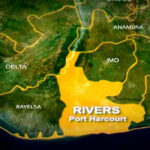Joseph Aoun, Lebanon’s newly elected president, has stepped into a leadership role during a critical time for the nation.
With a military background and a reputation for navigating complex political landscapes, Aoun’s presidency marks the end of a two-year power vacuum that had left Lebanon in political and economic paralysis.
His election comes with high expectations, as citizens and political observers alike look to him to address the nation’s crises and rebuild trust in its leadership.
Here are seven things to know about Joseph Aoun and the path that brought him to the presidency:
From Army Commander to President
Joseph Aoun, previously the commander of the Lebanese Armed Forces (LAF), has become Lebanon’s 14th president. His election ends a two-year vacancy following Michel Aoun’s departure from the position. Despite sharing the same surname, the two are unrelated.
A Lengthy Presidential Deadlock Resolved
Lebanon’s parliament took 13 sessions to finally elect Aoun, highlighting the deep divisions within the political system. He secured his presidency with 99 votes in the second round of the 128-member parliament, marking a moment of rare political consensus.
Distinguished Military Career
Born in 1964 in Sin el-Fil, a suburb of Beirut, Aoun joined the military academy in 1983 during the Lebanese civil war. Rising steadily through the ranks, he participated in numerous training programs, including the United States’ counterterrorism initiatives. Aoun’s accolades include Lebanon’s Medal of War (awarded three times) and various other honours. His military achievements include leading a successful campaign against ISIL (ISIS) in 2017 near Lebanon’s northeastern border.
Navigating Political and Economic Turmoil
As army chief, Aoun served during Lebanon’s crippling financial crisis, which left many soldiers needing second jobs to make ends meet. This economic collapse is part of a broader governance crisis characterized by corruption and sectarian politics. Aoun’s criticism of the political elite during this period, particularly for the financial hardships faced by soldiers, resonated with the public. He once remarked, “Soldiers were going hungry,” signalling his awareness of the nation’s struggles.
A Strategic Leader During Conflict
During the war in Gaza in late 2023, Lebanon found itself indirectly involved as Hezbollah clashed with Israel. Despite the killing of more than 40 Lebanese soldiers, Aoun kept the army out of the war. His leadership was pivotal in maintaining Lebanon’s commitment to a ceasefire agreement, which required Hezbollah to withdraw south of the Litani River, allowing the Lebanese army to take control of the region.
Broad Domestic and International Support
Aoun’s presidency gained traction due to his neutrality and diplomatic relationships. He built strong ties with regional and international powers, including the United States, Qatar, and Saudi Arabia. This broad support helped unify Lebanon’s fragmented parliament and secure his position as president. Israel, notably, welcomed his election, recognizing his role in ensuring stability along the border.
A Promising Yet Challenging Presidency
Though Aoun’s political stance remains largely undefined, he has pledged to rebuild areas devastated by Israeli strikes and to affirm the state’s exclusive right to carry weapons. However, addressing Hezbollah’s arsenal remains a sensitive and complex issue. His presidency comes at a rare moment of unity, but the Lebanese people are eager to see concrete changes in governance after years of neglect. As Aoun emphasized in his inaugural speech, national unity will be key to rebuilding the country.
ALSO READ FROM NIGERIAN TRIBUNE
Malaysia revises employment pass rules for foreign workers
WATCH TOP VIDEOS FROM NIGERIAN TRIBUNE TV
- Let’s Talk About SELF-AWARENESS
- Is Your Confidence Mistaken for Pride? Let’s talk about it
- Is Etiquette About Perfection…Or Just Not Being Rude?
- Top Psychologist Reveal 3 Signs You’re Struggling With Imposter Syndrome
- Do You Pick Up Work-Related Calls at Midnight or Never? Let’s Talk About Boundaries






